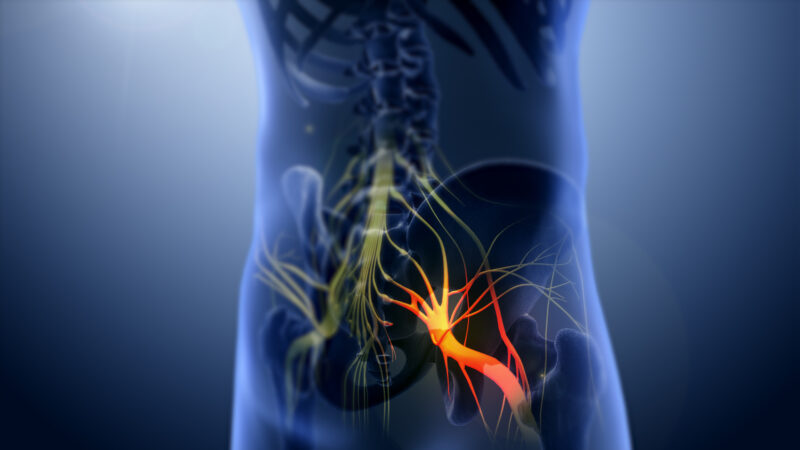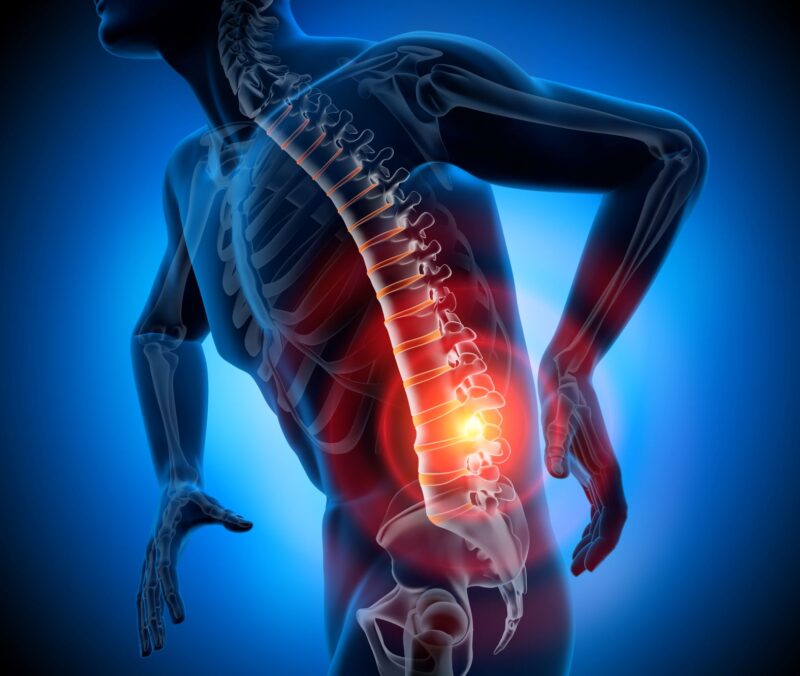Sciatica is one of the most prevailing triggers of excruciating lower back and leg pain. You may be tempted to ignore the pain expecting it to improve after a while, but do not hesitate to see medical help if it persists. Fortunately, McNulty Spine offers noninvasive and minimally invasive Las Vegas sciatica treatments that guarantee long-term relief.
Why do you have sciatica?

Sciatica refers to the nerve pain radiating from your gluteal area down your legs. This pain is usually due to a herniated disc, spinal stenosis, or bone spur. This disorder often affects one leg, causing debilitating pain, inflammation, and numbness. While sciatica symptoms may be crippling, you can obtain relief from several non-surgical approaches within a couple of weeks. Sciatica may also lead to lower back pain, weakness in the affected leg, and tingling sensations.
The sciatic nerve is the most extensive in your body, running from your lower lumbar spine to your hamstring. Several factors can irritate this nerve, causing immense pain that limits your mobility. Although a herniated disc is the most prevalent cause of sciatica, injuries, tumors, lumbar spinal stenosis, and spondylolisthesis may also contribute to this excruciating pain.
While anyone can develop sciatica, your risk often peaks in your late 30s and early 40s. Being overweight, having a career that demands lifting heavy objects, and living a sedentary lifestyle also elevate your risk of developing sciatica.
When should you contact your doctor about sciatica?
Persistent tingling sensations and debilitating pain traveling from your lower back to your hip are this disorder’s hallmark. Your pain may range from a mild ache to sharp stabbing pain that may feel like an electric shock. The pain may worsen after prolonged sitting and when you sneeze or cough. Mild sciatica resolves without medical intervention, but if self-care measures do not provide relief, you may need medical help. If your pain does not improve for more than a week or progressively worsens, you can also inform your specialist at McNulty Spine. Severe sciatica may cause difficulties during bowel movements, and if not addressed, it may cause other complications.
How can your doctor treat sciatica?

During your appointment, Dr. McNulty conducts a comprehensive physical exam and reviews your health history to detect the underlying cause of your discomfort. He may request you make several maneuvers that stretch the sciatic nerve. If these stretches trigger your pain, Dr. McNulty may conclude that something compresses the sciatic nerve. He may also order imaging studies like X-rays, Ct scans, and MRIs to detect the disorder affecting your life quality.
After diagnosis, Dr. McNulty recommends treatment depending on your test results. For instance, he may recommend spinal injections to relieve inflammation. But if you have severe symptoms that are unresponsive to noninvasive treatments, your provider may recommend more aggressive approaches, like lumbar laminectomies. This minimally invasive procedure widens your spinal canal relieving your symptoms. Your doctor may also recommend limited discectomy to eliminate the herniated disc pressing against the sciatic nerve.
If your sciatica affects your ability to complete your daily tasks, call McNulty Spine office or make an appointment online for comprehensive medical care.


